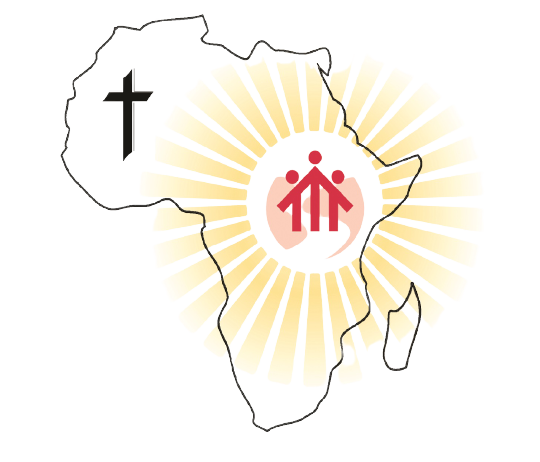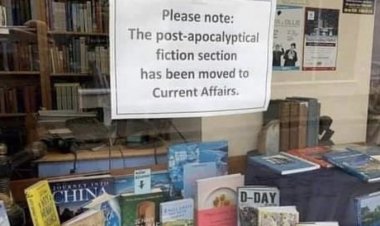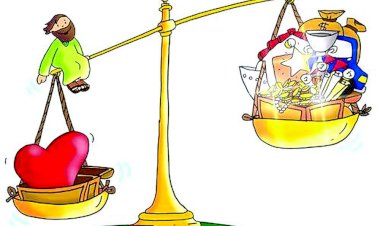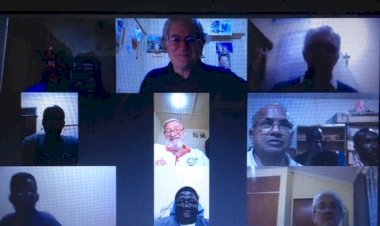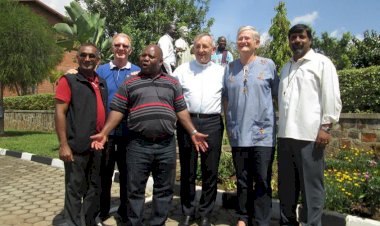Something about Vaccine Mandates
and Covid for DUMMIES especially if you are tired of hearing the same tune for the past 2 years
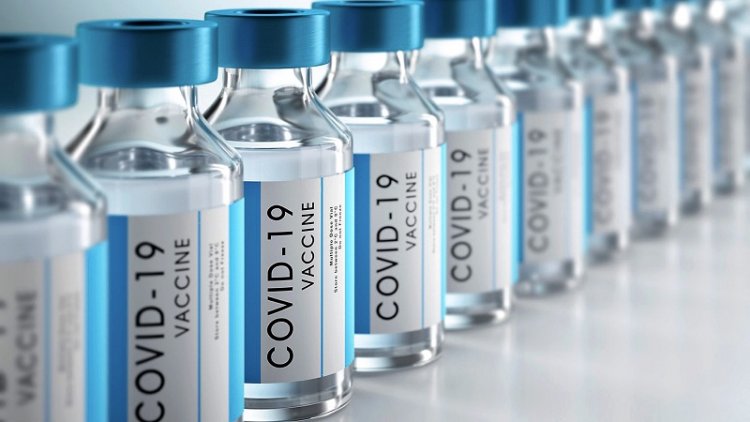
Something about Vaccine Mandates
(and here below, COVID for DUMMIES)
By Jay Bhattacharya, Senior Scholar of Brownstone Institute who is a Professor of Medicine at Stanford University.
COVID vaccines have become the touchpoint of a significant social battle, with the unvaccinated – mostly poorer working people in many countries – threatened if not forced out of work and to the edge of society by vaccine mandates. Given what we have learned about the epidemiological effects of the vaccines over the past year, the mandates have no scientific justification.
The evidence to date shows conclusively that the covid vaccines – even six months after full vaccination – protect well against severe covid disease, including hospitalization and death. Despite this fact, surprisingly, four lines of scientific evidence imply that not everyone needs to be vaccinated.
First, as for most other viruses, those who have recovered from covid have natural immunity. We now know that it is stronger and longer lasting than vaccine-induced immunity. In a study from Israel, the vaccinated were 27 times more likely to get symptomatic covid than those with natural immunity. This fact does not mean that it is better to get infected than getting the vaccine, but it does mean that the covid recovered are already well protected. They may get some additional protection from the vaccine, but since their risk is already very small any additional risk reduction is also small.
Second, while anyone can get infected, there is more than a thousand-fold difference in Covid mortality between the oldest and the youngest. For children, the risks are lower than from the annual influenza. During the first Covid wave in the spring of 2020, Sweden was the only major Western country to keep daycare and schools open for all its 1.8 million children ages 1 to 15. Without masks, social distancing, testing, or vaccines, there were precisely zero Covid deaths among the children, while the teachers had a lower risk than the average of other professions.
Third, as with any drug or vaccine, there are some risks with the covid vaccine, including myocarditis in children and young adults. It typically takes a couple of years until we have a clear picture of the safety of a new drug or vaccine. For children, the mortality risk from covid is minuscule, so even a small risk from the vaccine can tip the balance in an unfavourable direction. The same is true for the covid recovered.
Fourth, unlike the polio and measles vaccines, the covid vaccines do not stop the transmission of infection. They are excellent at reducing the risk of severe disease and death, but their ability to prevent infection wanes after a few months. Therefore, even if you are vaccinated, you will eventually be infected.
With milder symptoms, it could even be that the vaccinated are more likely to spread it to others, compared to the unvaccinated, who are more likely to be bedridden at home. Hence, when we urge people to get vaccinated, we do it mainly for their own sake, not for protecting others.
Let’s pull these facts together to see what it means for vaccination policy.
Older people who have not had Covid should immediately get the vaccine. It can save your life! There are still some unvaccinated older people. Saving lives is a key aim of public health, and persuading this group to be vaccinated should be the focus of our vaccination efforts.
It is an odd reality about vaccine mandates that they aim to increase vaccination among working-age adults and even children, including those with natural immunity, rather than the high-risk elderly. The well of public trust in public health is finite, and to waste it on a policy that seeks to increase vaccination rates in a lower risk population makes little sense.
It is unethical to use vaccines on those who do not need them, when many others do need them to survive covid. This includes millions of poor, high-risk older people in Latin America, Africa, and Asia, where there is still a vaccine shortage.
It is also unethical to fire people who choose not to get vaccinated. Many of the vaccine-hesitant were the heroes of last year – nurses, policemen, firefighters, truckers, and others who kept our society functioning while the laptop class stayed home during the lockdowns. They worked unvaccinated and got COVID as a result. They should be rewarded for their selflessness, not pushed to the edge of society, a new underclass.
The vaccine mandates force vaccines on many people who do not need them nor want them. There is now widespread distrust of public health agencies and officials and increasing vaccine scepticism as a result. The loss of trust has generated vaccine scepticism of unseen proportions. It has contributed to a dangerous decline in childhood vaccination rates for other diseases and made it harder to convince the remaining older people to get vaccinated.
There should be no discrimination based on vaccine status, whether for employment, schools or anything else. That will help re-establish trust in public health.
----------------------------------------------------------------
COVID for DUMMIES and GUIDE to SANITY.
Motivated by forgotten concepts such as respect for human rights and common sense and proportionality.
BASICS
All respiratory diseases function in a purely seasonal way. Depending on climate and temperature, waves arrive at the same time each year but this differs by country.
It therefore makes no sense to ever compare country performance unless you are looking at the full calendar year (e.g. the current comparison that Spain seems to be doing well).
Each wave is inherently self-limiting and takes the same amount of time from start to finish (around 10 weeks). Distorted pictures may arise if you are dealing with large countries where the timing of the waves differs per region.
TIMING
All mitigation strategies will have no effect on when a wave starts or finishes, and very limited effect on how high the wave becomes. It is therefore of utmost importance to take as few measures as possible and only those that have the least collateral impact.
ETHICS
Given the seasonal nature of the waves, it is unethical and wrong to attribute any blame to your citizens. Their behaviour will have no impact on when a wave starts or ends, and very limited influence on the number of casualties during said wave. Rather, it is important to communicate clearly and openly to your citizens about the timing of the waves and enable them to organize protection for the vulnerable parts of their families and social circles.
HUMANITY
A key principle must be that science does not trump everything.
Some restrictions must never be considered because they are against the nature of human interaction, such as wearing face masks for prolonged periods of time, or imposing any restrictions on population groups not at risk from the disease.
TESTING
Testing is to be done exclusively on those reporting symptoms.
QUARANTINE
Quarantine is to be prescribed exclusively to those reporting symptoms that have subsequently tested positive. Given the scope of spread, quarantine for anyone else will be too late in general and very often affect healthy people, causing immeasurable collateral harm.
VACCINATION
Vaccination should be offered to all those considered to be at elevated risk from the disease as a priority, and should occur approximately one month before the start of the peak periods.
No vaccination should be attempted during peak periods as they may be followed by a short unbalancing of the immune system.
HIGH-RISK ENVIRONMENTS
One of the very few Non-Pharmaceutical Interventions that must be attempted is to lower the number of people exposed to high-risk environments, during the seasonal peaks only.
Clear communication is needed with the families of care home inhabitants to enable them to, for example, take their relatives back to a family setting just before peak periods.
During the seasonal peaks, hospitals must be kept as empty as possible, especially in the Covid wards. It is essential to avoid early hospitalization caused by panic and media. Those testing positive but not experiencing symptoms must never be admitted to Covid wards, where frequently they will develop problems they would have never developed otherwise.
STIGMATISATION
No group or individual must ever be made responsible for the overall health situation, as this is mostly seasonal. Personal choice and the right to determine how to treat one's own body must be respected at all times.
TRANQUILITY
It is essential to understand that the biggest weapon against the disease is good immune health. Any communication that unbalances people or puts them in a state of fear must be avoided at all cost.
Additionally, any interventions that contribute to creating a state of fear are counterproductive and must not be implemented (e.g. masks, hand sanitizers, boards requesting distancing etc).
INDIVIDUAL PATIENT CARE
The disease must be treated on the front line as an individual disease, rather than by blanket measures. Patients experiencing difficulties should present themselves to their GP and be either referred, in strictly defined cases, to a hospital, or be followed up and advised on the appropriate treatment, usually at home.
COMMUNICATION BRIEF
Here is a template that can be used when communicating with your citizens. It has all the key messages that must be maintained at all times:
Covid is a disease that appears at various times of the year and the greater risk periods in our country are winter time.
Covid victims are typically suffering from poor immune systems. Therefore, we encourage exercise, mixing socially, and regular risk assessments with your GPs at all times of the year, any changes in behaviour should be limited to the risk periods.
Those who do not identify as high-risk cases should adopt the following behaviour during peak periods:
- Continue to mix socially as you like with anyone you know not to be at risk.
- Work with those you consider at risk to see if they can be kept out of high-risk environments for the brief peak periods.
- Refrain from testing unless experiencing symptoms, and do not frequent your GP for anything rather than urgent matters during the peak periods, in order to keep capacity for those in need.
Those who identify at being at increased risk should adopt the following behaviour during peak periods:
- Limit your social interactions to those you perceive to be fit and healthy and therefore unlikely to carry high viral loads.
- Limit your access to high-risk environments for these brief periods.
- Continue to exercise and try to engage in activities that you find satisfying, though you may want to limit the amount of high-risk people you interact with during these times.
